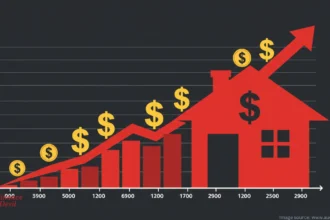How to get a loan approved can be a daunting task, especially if you’re new to the process or have faced rejections in the past. However, with the right knowledge and preparation, you can significantly increase your chances of success. In this comprehensive guide, we’ll explore practical tips and strategies to help you navigate the loan application process with confidence and increase your likelihood of getting approved.
Tip 1: Assess Your Financial Situation
Before applying for a loan, it’s essential to assess your financial situation thoroughly. Evaluate your income, expenses, existing debts, and credit history. This self-assessment will help you determine the type of loan you need, the amount you can reasonably borrow, and your repayment capacity. It’s crucial to be realistic about your financial capabilities to avoid taking on more debt than you can handle.
Tip 2: Understand Your Credit Score
Your credit score is one of the most critical factors lenders consider when evaluating loan applications. A higher credit score indicates a lower risk of default, making you a more attractive borrower. Check your credit report from the three major credit bureaus (Experian, Equifax, and TransUnion) and address any errors or discrepancies that could be negatively impacting your score. If your credit score is less than ideal, take steps to improve it before applying for a loan.
Tip 3: Reduce Existing Debt
Lenders are wary of borrowers with high levels of existing debt, as it increases the risk of default. Debt consolidation can be an effective strategy to reduce your debt burden and improve your debt-to-income ratio. Consider consolidating high-interest debts, such as credit card balances, into a single, lower-interest loan. This not only simplifies your monthly payments but also demonstrates your commitment to managing debt responsibly.
READ ALSO: Breaking Down Mortgage Loans – What Type of Credit is a Mortgage?
Tip 4: Gather Required Documentation
Lenders typically require a range of documentation to verify your identity, income, assets, and liabilities. Gather the necessary documents in advance, such as pay stubs, tax returns, bank statements, and proof of employment. Having these documents readily available will not only speed up the application process but also demonstrate your preparedness and organization.
Tip 5: Choose the Right Loan Type
Different loan types cater to different needs and circumstances. Secured loans, such as mortgages and auto loans, require collateral (e.g., a home or vehicle) and generally offer lower interest rates. Unsecured loans, like personal loans and credit cards, do not require collateral but typically have higher interest rates. Consider your specific needs and financial situation when selecting the loan type that best suits your circumstances.
Tip 6: Shop Around for Lenders
Not all lenders have the same lending criteria, interest rates, or terms. Shopping around with multiple lenders can help you find the best deal and increase your chances of getting approved. Compare interest rates, fees, repayment terms, and customer reviews to find the most favorable lender for your needs.
READ ALSO: Home Loan Interest Rate Trends and Where They’re Headed
Tip 7: Prequalify Before Applying
Many lenders offer prequalification, which allows you to get an initial assessment of your eligibility and estimated loan terms without a hard credit check. Prequalifying can give you a better understanding of your chances of approval and help you avoid unnecessary hard credit inquiries that can temporarily lower your credit score.
Tip 8: Provide Accurate and Honest Information
Honesty is paramount when applying for a loan. Lenders will verify the information you provide, and any discrepancies or inaccuracies could result in immediate rejection or legal consequences. Be transparent about your financial situation, including any past credit issues or delinquencies, and provide explanations if necessary.
Tip 9: Consider a Co-signer or Co-borrower
If you have a limited credit history or a less-than-ideal credit score, adding a co-signer or co-borrower with a strong credit profile can increase your chances of getting approved. However, it’s essential to understand the responsibilities and risks involved, as the co-signer or co-borrower is equally liable for repaying the loan.
Tip 10: Be Patient and Persistent
Getting a loan approved can take time, especially for larger loans like mortgages. Be patient throughout the process and promptly provide any additional information or documentation requested by the lender. If your application is denied, don’t be discouraged. Ask for the specific reasons for the denial and work on addressing those issues before reapplying.
To Recap
Getting a loan approved requires careful preparation, diligence, and a solid understanding of the process. By following the tips outlined in this guide, you can increase your chances of success and navigate the loan application process with confidence. Remember to assess your financial situation, understand your credit score, gather required documentation, and shop around for the best lender. Additionally, be patient, persistent, and honest throughout the process, and don’t hesitate to seek professional advice if needed. With the right approach, securing the loan you need to achieve your financial goals is well within reach.
Frequently Asked Questions (FAQs)
How long does it take to get a loan approved?
A: The time it takes to get a loan approved can vary depending on the lender and the type of loan. Personal loans and credit cards may be approved within a few days or weeks, while larger loans like mortgages can take several weeks or even months. Providing complete and accurate documentation upfront can help expedite the process.
Can I get a loan with bad credit?
A: While having a good credit score increases your chances of getting approved, it is possible to get a loan with bad credit. However, you may need to explore alternative lenders, such as bad credit personal loan providers, and be prepared to pay higher interest rates or provide collateral. Improving your credit score before applying can help you secure better terms.
How much can I borrow with a personal loan?
A: The amount you can borrow with a personal loan depends on various factors, including your credit score, income, and existing debts. Most lenders offer personal loans ranging from $1,000 to $100,000, but the specific amount will be determined by your creditworthiness and ability to repay the loan.
What is the difference between a secured and unsecured loan?
A: Secured loans require collateral, such as a home, vehicle, or other valuable asset, which the lender can seize if you default on the loan. Unsecured loans, on the other hand, do not require collateral, but often have higher interest rates and stricter credit requirements because they pose a higher risk for the lender.
In another related article, Student Loan Forgiveness: A Comprehensive Guide





